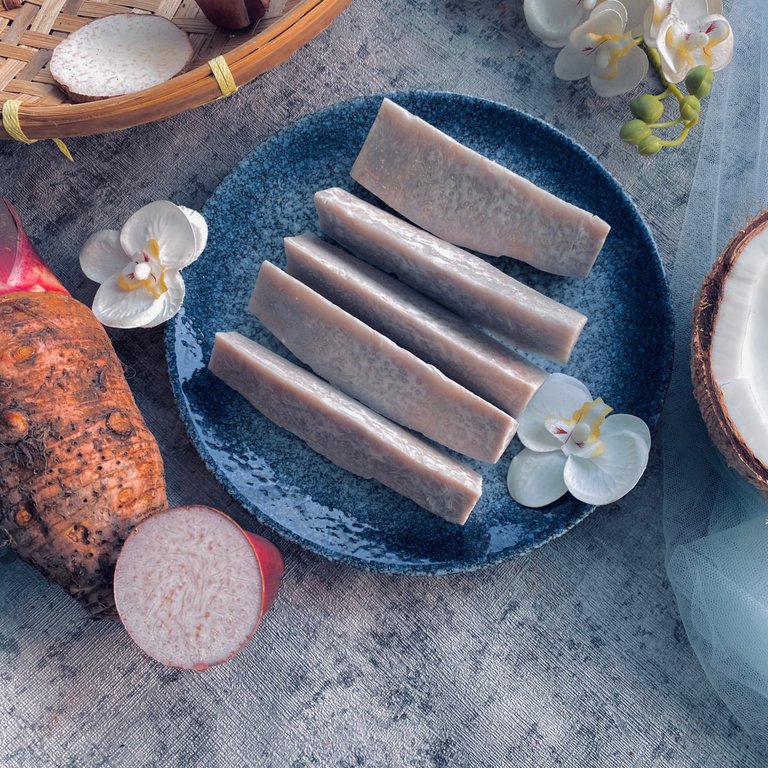
Taro is not a staple food that is foreign to me. Although, sometimes taro and yam alternate in my family's food supply. There are many ways to serve taro, but indeed the old-fashioned one always leaves an impression on rural communities that breed taro farming.
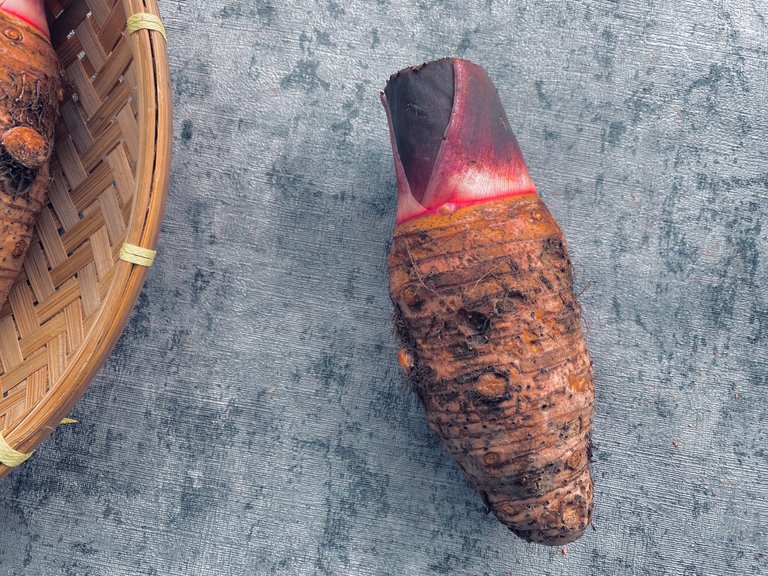
In the past, I have shared the “Taro Bowl” recipe combined with spicy tempeh. In this recipe, I made taro instead of rice. This is especially useful for carb dieters who want to reduce rice consumption.
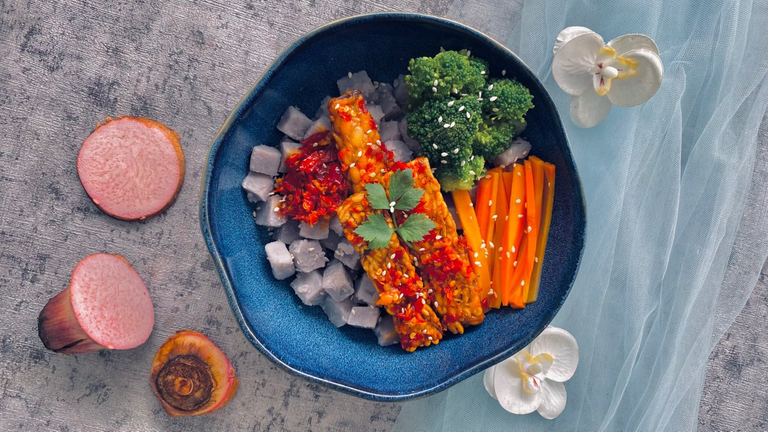
If you haven't read my post about this, you can read it here: Taro Bowl With Spicy Tempeh
Two Simple Ways To Serve Taro For Breakfast
This time I will serve taro in two simple ways, namely by boiling and frying. Actually, this is not an option. We can present both ways of presentation because they can be done in stages that are concurrent or connected to one another.

To get fried taro results, we have to boil the taro first. That's why I said earlier that the two taro presentation techniques are connected to one another. But if you don't want fried taro for the reason of wanting an oil diet, then you only need to serve boiled taro.
The Reason Why Choose Boiled Taro
There are always choices to be healthier, even though the more delicious taste makes us often complacent to choose food that is served with the risk of worsening health. For example, if there is a choice of boiled or fried food, most people will choose fried because the smokey sensation produced by fried food will be more delicious.
But the deep fry method which produces a more delicious taste has the risk of increasing cholesterol which will trigger various diseases. So boiled food is indeed more feasible to choose when considering health.
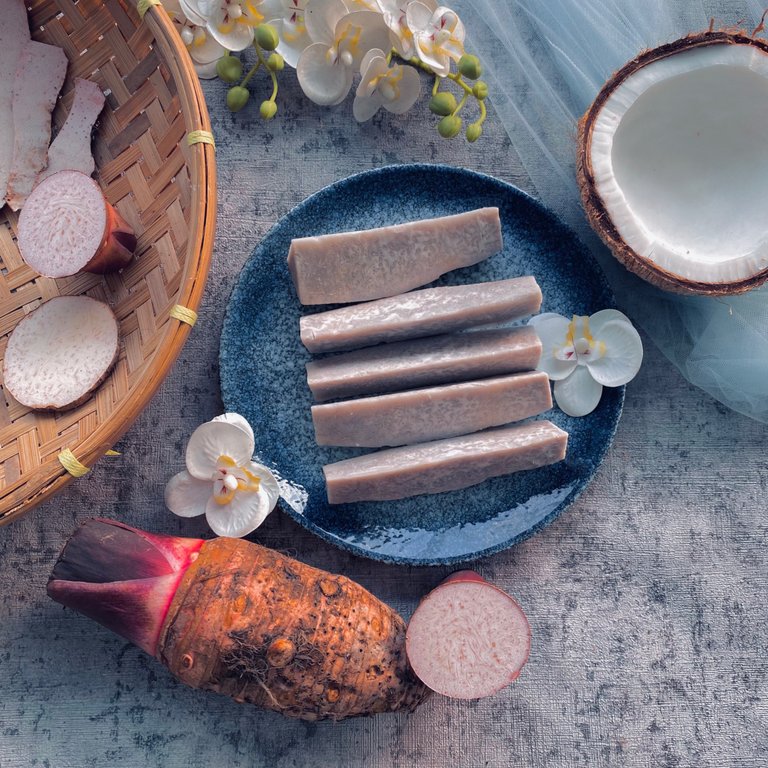
Apart from health problems, old people did not have much stock for cooking oil. So they prefer to cook by boiling. This includes cooking mostly boiled vegetables and then served with spicy chili sauce.
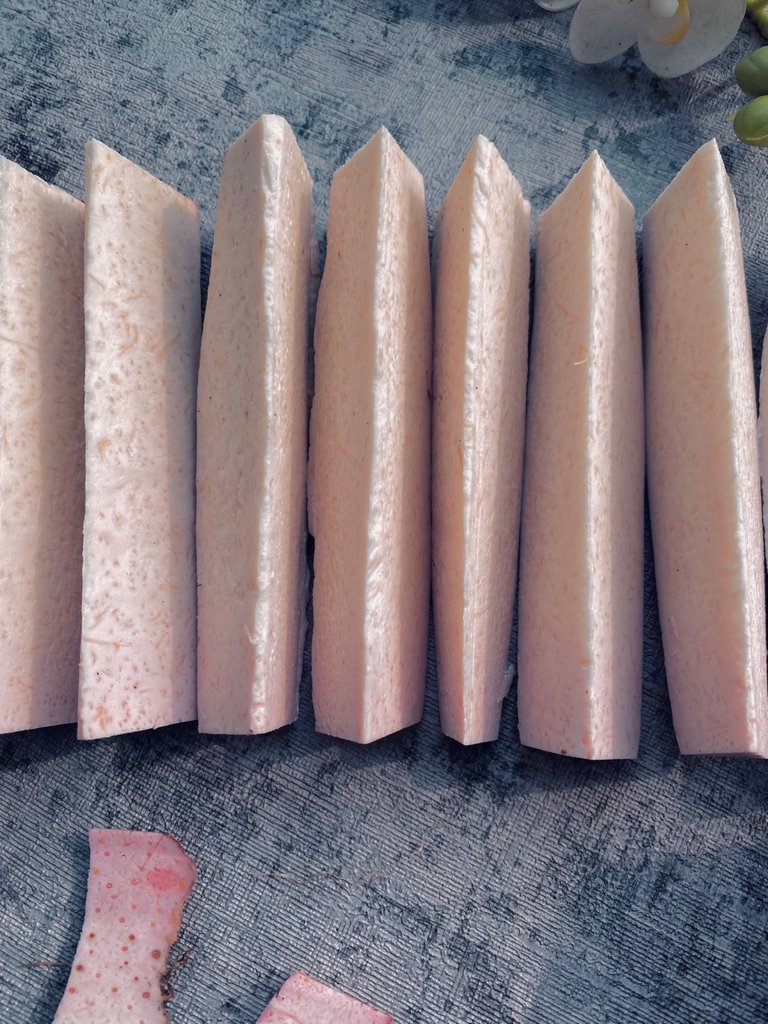
How To Make Boiled Taro.
Make sure you have gloves before processing taro. This is to prevent the hands from becoming itchy because they are exposed to the sap produced from taro. Peel the taro slowly. Don't peel the taro skin too thick. Taro meat is too expensive to throw away.
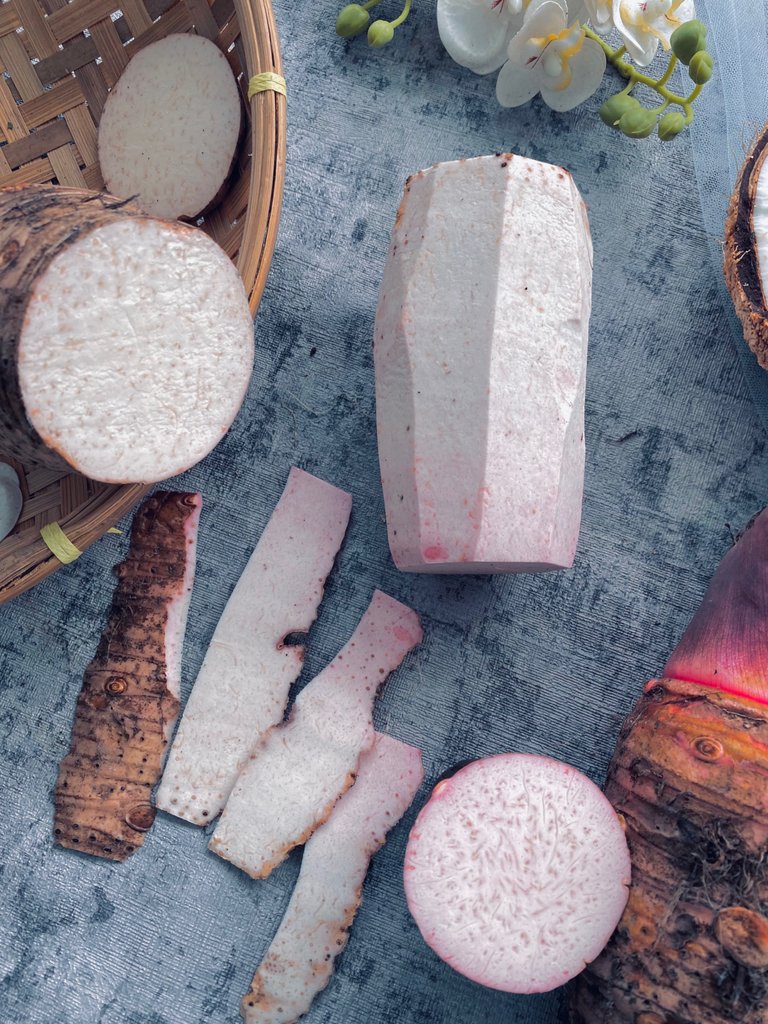
Here we can see that taro is sometimes slightly purple in color, but mostly white like tuber meat in general.
After the taro is peeled, cut the taro according to taste. I cut taro to form like fries but thicker.
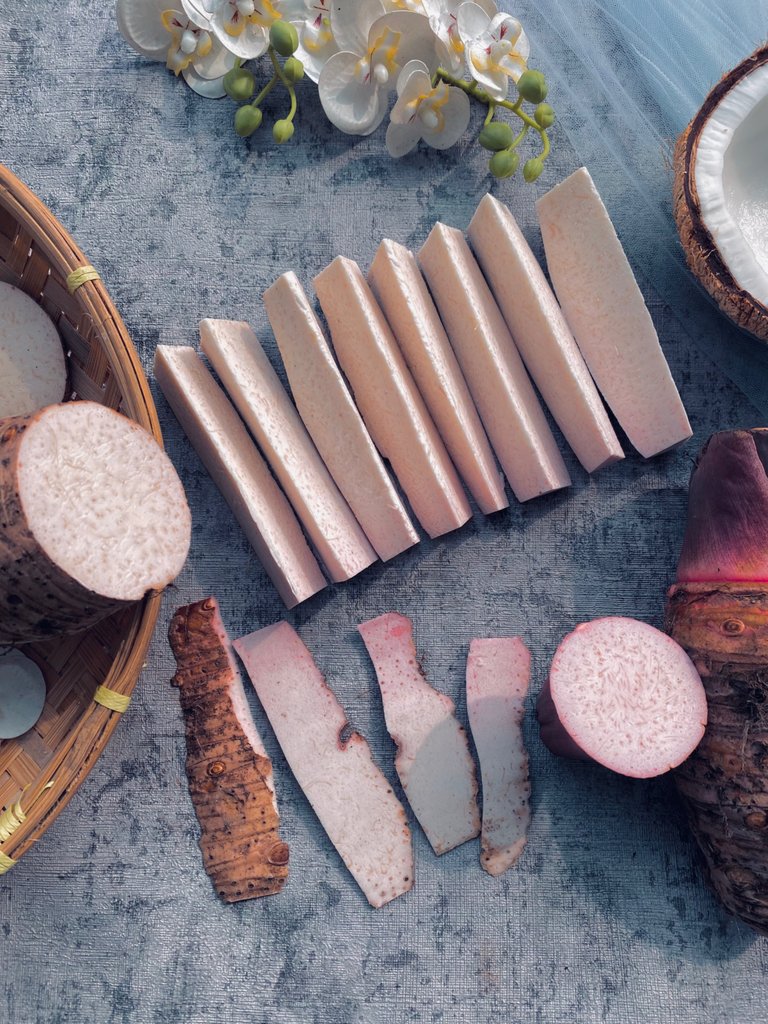
Prepare the salt water. Then, soak the taro pieces that have been washed beforehand in the salt water. Make sure the taro is clean from the mucus that comes from the sap.
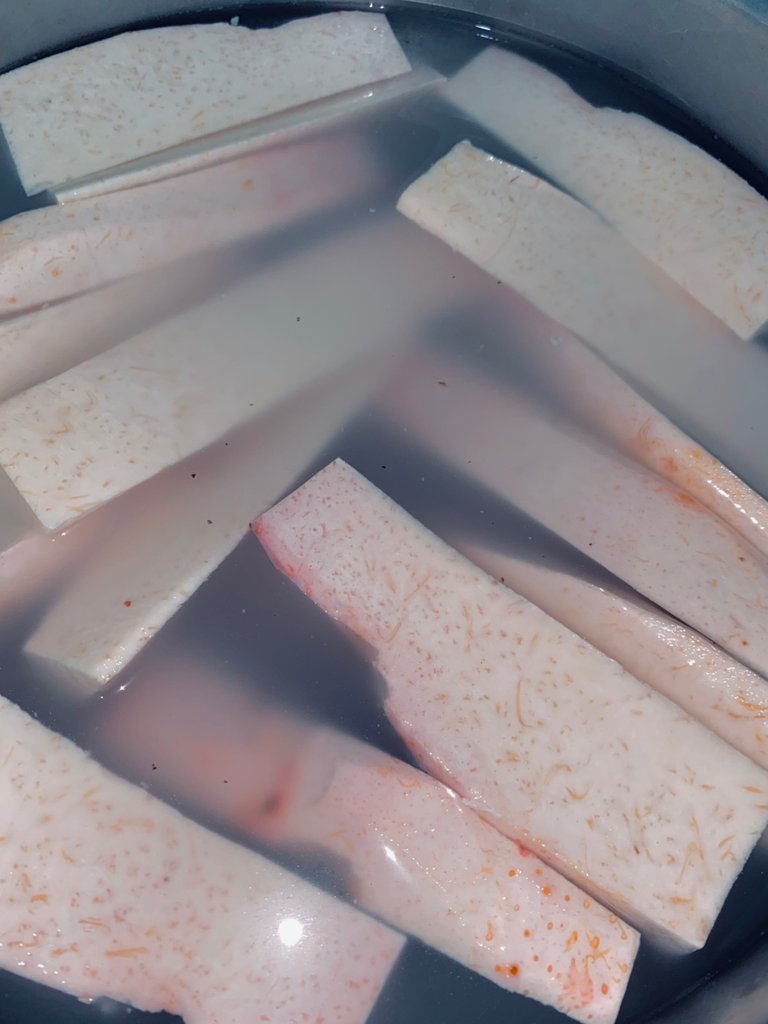
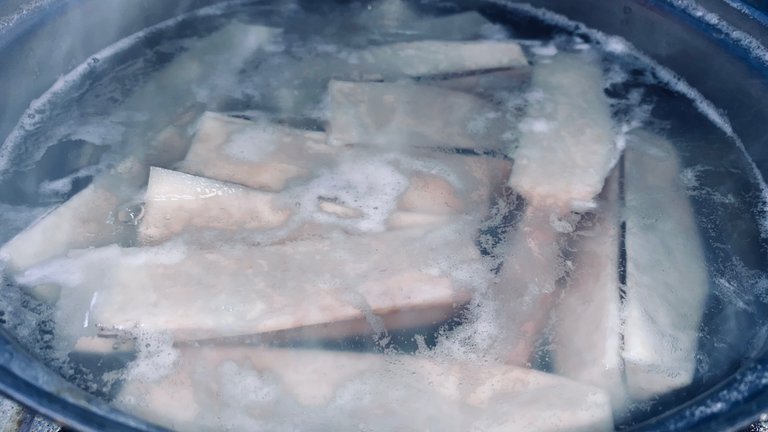

Remove and drain the taro. Serve while warm with tea or coffee—a simple but perfect morning with such home-cooked food. Enough to give us energy to go through the day.
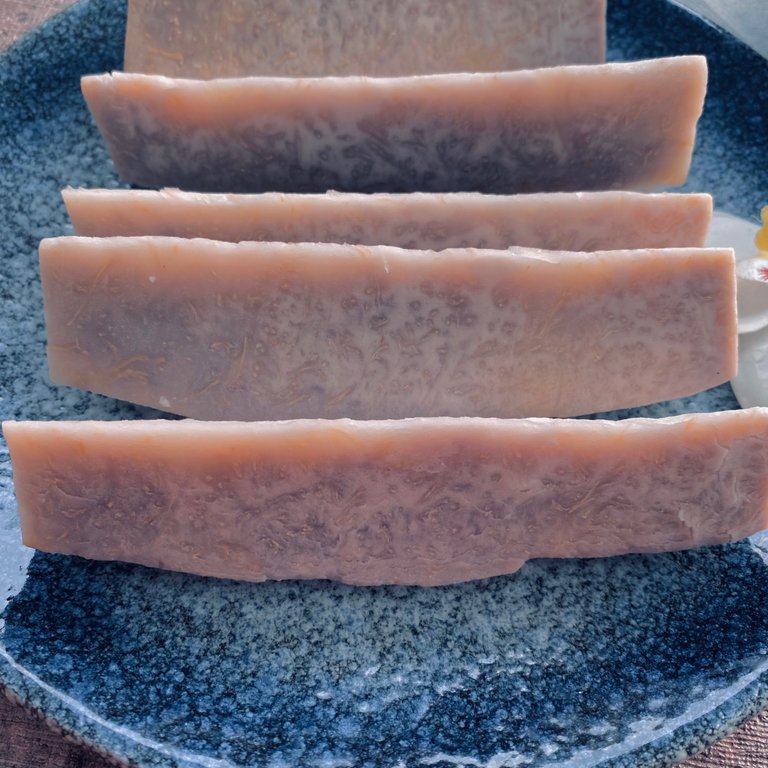
So what if you want to try another version of boiled taro? Let's try another way of serving.
How To Make Fried Taro
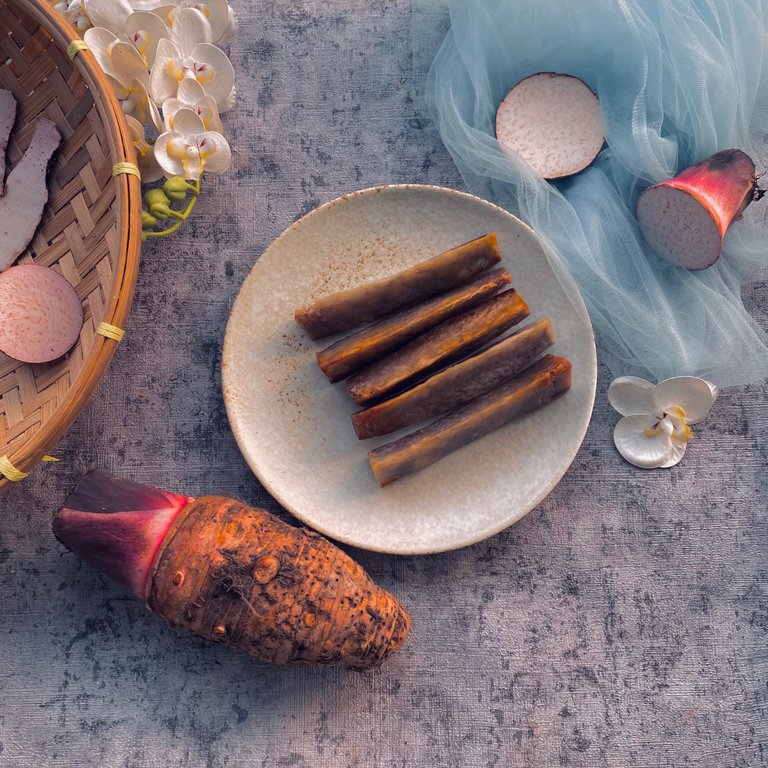
Then the last one will be very easy. I promise. Once you have boiled taro, it's easier for you to make other versions. In fact, you can make spicy fried taro later or serve fried taro by caramelizing it with soy sauce.
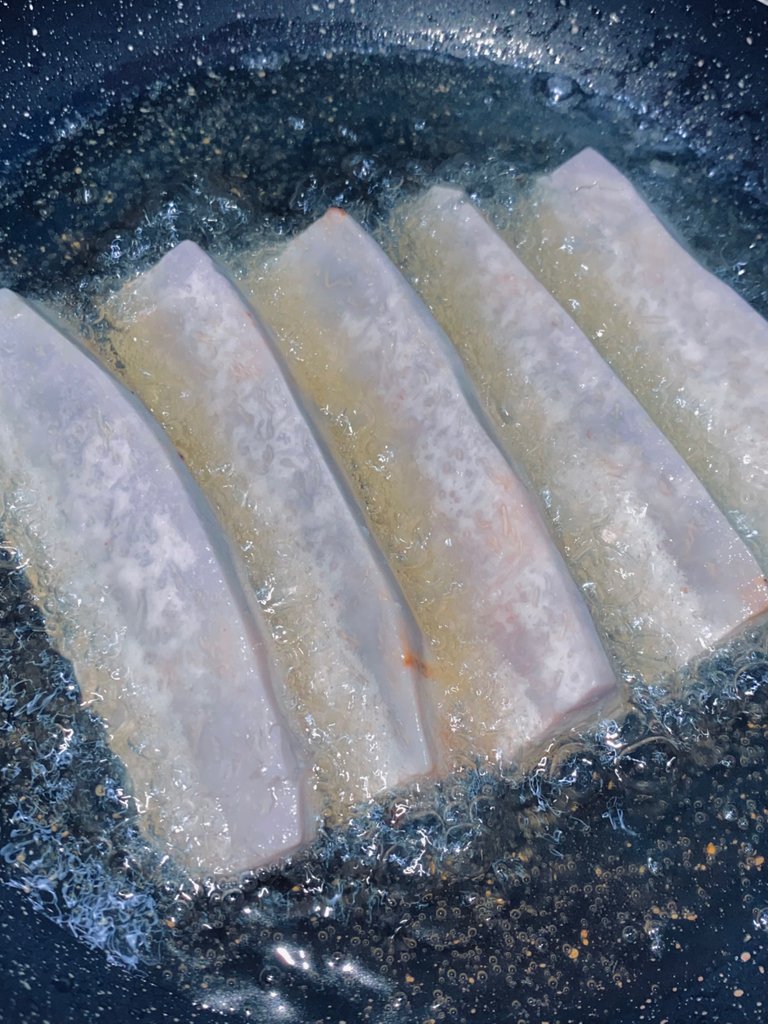
So, you only need to heat cooking oil for the deep frying method. Then fry the boiled taro until it has a brownish color on the surface of the taro.
Easy enough! Yep, I already said that. The results of fried taro are not very beautiful in color, but I assure you that their taste is delicious!

When it's still hot to warm, fried taro will have a crispy texture on the outside while the inside is still smooth. Absolutely perfect for snacks.
Hmm, wait, I'll choose boiled taro for breakfast. Then I'll fry up the rest of the boiled taro for snacks during the day. Fair enough decision, right?

So you can store boiled taro in the refrigerator or you can freeze boiled taro as stocks at a later date without needing to process it The method of cooking from scratch is quite troublesome, (such as soaking taro in salt water which is quite time-consuming).
So, do you prefer healthy boiled food or fried food with incredibly delicious smokey sensation?
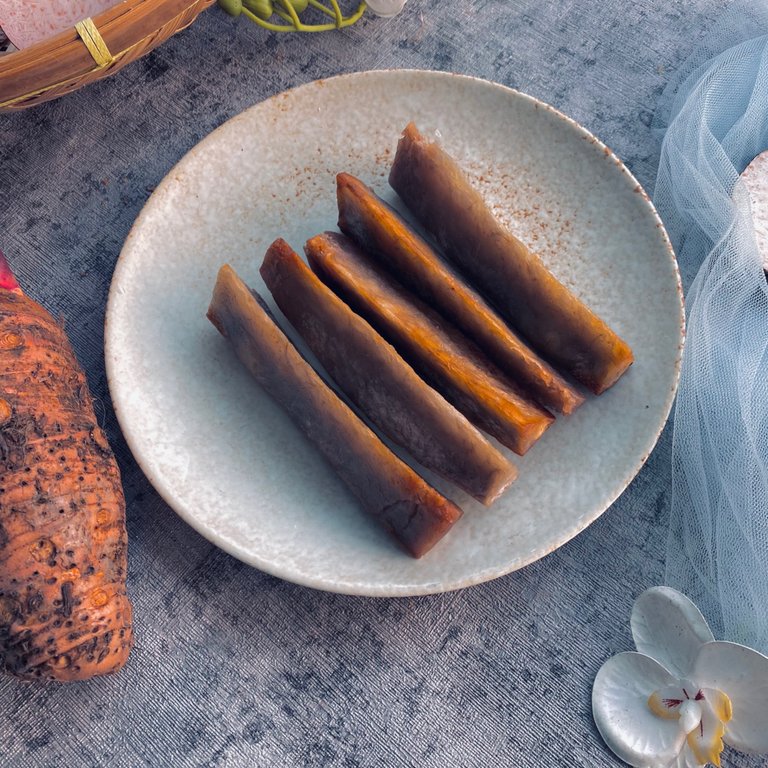
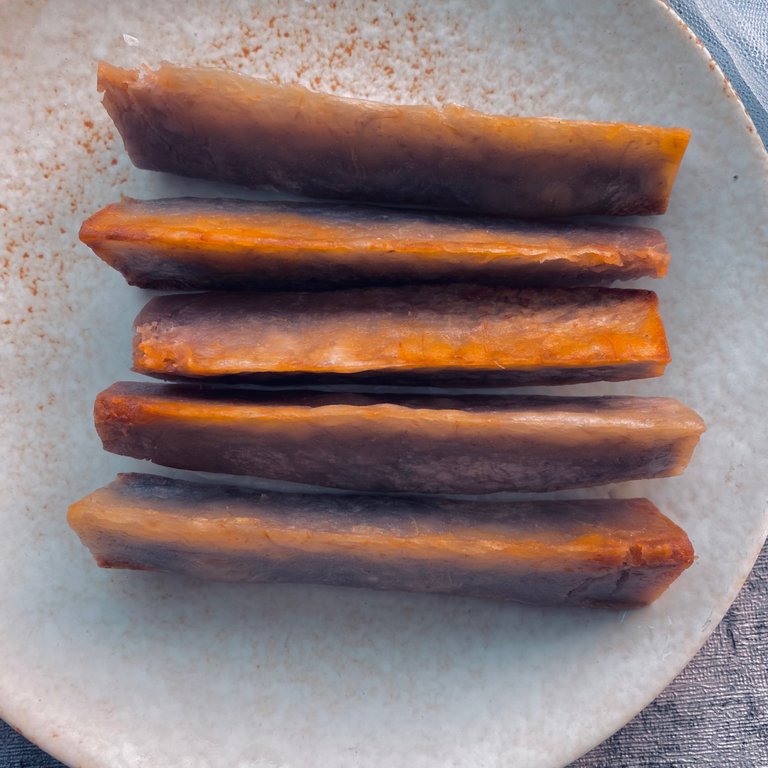


Thank you for reading my blog and reblog if you want my blog this time worthy of reading by others.
Best Regards,
Anggrek Lestari

Anggrek Lestari is an Indonesian fiction writer who has published two major books. Now She is a full-time content creator. She has a goal to share life, poem, and food content that makes others happy and can get inspiration.
Contact Person: authoranggreklestari@gmail.com
Discord: anggreklestari#3009
~~~ embed:1599772126755815424 twitter metadata:Nzg4MTEwNzl8fGh0dHBzOi8vdHdpdHRlci5jb20vNzg4MTEwNzkvc3RhdHVzLzE1OTk3NzIxMjY3NTU4MTU0MjR8 ~~~
The rewards earned on this comment will go directly to the people( @anggreklestari, @afterglow ) sharing the post on Twitter as long as they are registered with @poshtoken. Sign up at https://hiveposh.com.
You just made me try fried taro which I have never tried before.
You should try it for sure
I will (^_^)
I prefer boiled to fry 😊. Less cholesterol ehe
Me too. 😛 When we get older, we need to get away from cholesterol ehehe
Hahaha. So yummy and tasty. Why does this look like coco yam 🍠. Ti also look like a yam too. Though it’s a tuber. Hehehe.
I don’t think we have plants like this over here in my country.
in my village, this is yam :)
yam is cheaper than taro but yeah for the taste, taro is better (in my opinion)
Yeah. This is yam over here too.
But the taro. Does it have a better taste??
Yeah taro is better for texture smoother :)
Do you also boil yam before frying?? Just like you do for taro?
Seems really delicous! and the way you took the photos are really pretty too, good job with that food photography ♥️
Join the foodie fun! We've given you a FOODIE boost. Come check it out at @foodiesunite for the latest community updates. Spread your gastronomic delights on and claim your tokens.
Both! Or maybe just boiled, but with a couple of different sauces. I don't like eating only one thing, there has to be many different flavours!
Greetings @anggreklestari, taro is very similar to a tuber that in my country we call "ocumo chino", even the color is similar you get them purple and white, we usually consume them in soups, parboiled to accompany roasts, in chicha which is very delicious by the way, and when leftover we cut them into slices and fry them, they are crispy; thanks for sharing these incredible ideas to consume the taro with hot sauce, I can replace it with ocumo chino.
Happy and blessed start of the week!
I love both versions. Fried is tastier than fried potatoes, and boiled is also delicious and very filling. To eat once in a while, I'll choose fried, but to eat as breakfast, boiled is a better option. It's better to add healthy fats like avocado hahaha
Wooh! Never tried fried taro before. This is really interesting. Will try it one day for sure 😊 you're very good in plating @anggreklestari and photography. Simple dish looks a luxury one! 😘😘😘
Yay! 🤗
Your content has been boosted with Ecency Points, by @anggreklestari.
Use Ecency daily to boost your growth on platform!
Support Ecency
Vote for new Proposal
Delegate HP and earn more
@anggreklestari Hello friend they look very delicious the two presentations and they are very rich here in my country Venezuela in the city of Carúpano we call it Chinese ocumo.
I am very glad to know that in your country they also cultivate it, happy day. 🤗🤗🤗🙃🙃🙃😘☺️😘☺️😘😘❤️❤️❤️🎄🎄👏👏👏
I don't know the itchiness of the taro will disappear in saltwater. we use a lot of tamarind or lime juice to avoid the itchiness of it. Next time I will try your way. because of itchiness we never eat them without spices. now your recipes gave me an idea about i will try it how you showed in your recipe. thanks for sharing. greetings💓😊